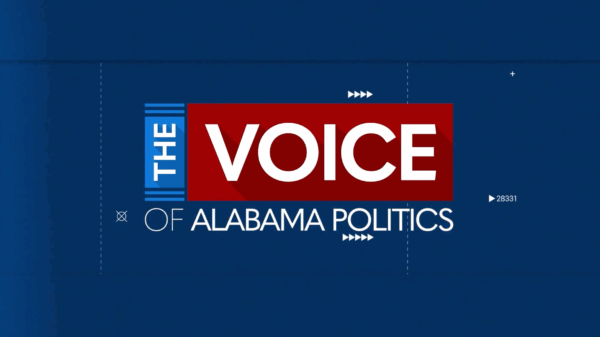By Bill Britt
Alabama Political Reporter
“People from all over the world come to UAB because they trust us and because we deliver on that trust. They understand the high level of care only a great academic institution can provide from the synergy of great biomedical research, comprehensive clinical care, and education of the nation’s brightest medical students.” These are the words of Will Ferniany, Ph.D., Chief Executive Officer, UAB Health System, speaking about Alabama’s largest healthcare institution.
Dr. Ferniany is a man with much on his mind, “There are a lot of things on my mind about Medicaid.” This is how a recent conversation with Dr. Ferniany began.
“First let me say Dr. Don Williamson is doing a fabulous job as interim head of Medicaid, and he is right when he says if it [the September 18 Constitutional Amendment] passes it will be a train wreck and if it fails it will be an out of control train wreck.”
Ferniany says he believes that, even the proposed $602 million, “is going to be a little be less than we need to run a minimum program.”
As weeks have turned into mere days, the opposition to the amendment has grown more vocal.
“There are a lot of people against this amendment and I can understand that but our leadership in Montgomery selected to fund it this way,” said Ferniany. “I also understand that the alternative to not funding it is horrible, really horrible.”
As CEO of UAB Health System, Ferniany oversees one of the biggest businesses in Alabama. He is a man accustom to plans, budgets, goals and decisions.
“The big issue is what happens if it doesn’t pass, Ferniany said, “If it does we have a three year sigh of relief, until we find a more permanent and sustainable solution. If it doesn’t pass I really have no idea what will happen. I wish I did, but no one is really talking about that.”
Most lawmakers at least on some level are aware of the ramifications if the amendment doesn’t pass “but the governor has already said he would not raise taxes. So, they call a special session and then what happens?”
Even in the hours immediately following the vote to balance the General Fund Budget through a constitutional amendment smart people have been asking, “What is Plan B?” In fact, it has been emphatically stated said that there is no plan B.
Ferniany says this is his concern, “How to avoid a catastrophe if it doesn’t pass?”
But he seems resolved to the fact that “we will know soon.”
In the meantime he and others have been working on what is the possible future of Medicaid in Alabama.
“We have been working hard with the Alabama Hospital Association in putting together a coalition of other stakeholders as to what are the solutions,” Ferniany said. “We have been working with Don Williamson to make a recommendation as to how we move forward.”
He says that the coalition is “looking at what are the best options so we can present them to the Governor and the legislature. We don’t have that solution yet, but there are some things we do know.”
But he understands that all consideration is against a backdrop of a state that has no more money or the appetite to raise more money to put toward Medicaid.
The state of Alabama is the only state in the country that provides no state money for running its hospitals from Medicaid.
“Most state use some of its general fund money for its match for hospitals, Alabama uses none. The hospitals fund their own fund, they pay their own match,” said Ferniany.
In Alabama “the match” is for every dollar the state spends on Medicaid the federal government matches it with approximately $2.80 dollars.
This is done through two mechanisms, one for public hospital who uses Certified Public Expenditures (CPE). “The hospital certifies that it had a Medicaid eligible expense. As a public hospital that is in effect a state fund. We certify that and send that to Medicaid, they in turn send it to the federal government and federal government then sends the match,” says Ferniany.
In Alabama private hospitals pay a tax to the state “and the tax goes to pay the match and they get the money back through treating Medicaid patients, just as if the state paid the match,” said Ferniany. “The problem with this system is that you get paid based primarily on utilization.” In other words the more the state or hospital spends the money it receives in a match.
According to Ferniany, “One way to fix Medicaid is to develop a treatment system that deals with the chronic care, that has more primary care that reduces utilization.
“But in Alabama, if you reduce utilization you reduce the state to federal funding.
So, one of the fixes going forward has got to be a different way to fund the Alabama hospital component of the program,” said Ferniany.
In Alabama not only do the hospitals fund their own Medicaid fund, they give a portion back to the General Fund to shore up other Medicaid programs.
If you think about Medicaid, someone has to take risks. It is not an insurance program, it is an entitlement program,” says Ferniany.
He says, either the risk is with the state government, the federal government, private managed care or the hospitals themselves.
“There are some models out there that we are looking at but given the existing dire state of the program, time will be need to make the changes,” he concluded.


















































